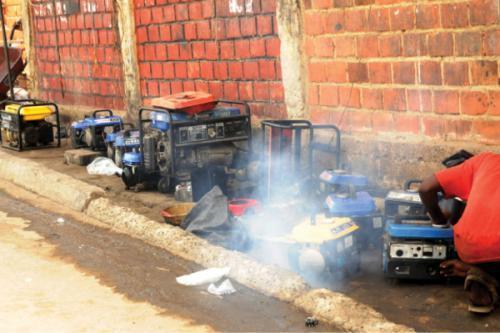There are no products in your shopping cart.
| 0 Items | £0.00 |


BUSINESS owners in Nigeria's Federal Capital Territory (FCT) are up in arms against plans by the government to impose an environmental levy on companies that use private generators to electrify their operations.
Currently the world's largest importer of small and medium sized generators, Nigeria has a chronic power supply shortage crisis as she only generates about 7,000MW of the 50,000MW she needs. Of this generated volumes, only 4,000MW are distributed to consumers due to problems with the transmission and distribution network.
To remain afloat, businesses and private residences need to generate their own power, using environmentally-unfriendly diesel generators. In a big to reduce the number of polluting generators, the Federal Capital Territory Administration (FCTA) has contracted the Abuja Municipal Area Council (Amac) to start levying users.
Over the last week, Amac officials have been distributing payment notices to several organisations across Abuja. Ahmed Haruna, Amac's director of public health, said industries, warehouses and banks are to pay an annual fee for using generators henceforth, to curtail the constant discharge of harmful hazardous substances.
Mr Haruna said: “Management of Abuja Municipal Area Council Environmental Services, wishes to notify you of levy/fees due to Abuja Municipal Area Council for gaseous emission permit limit. This includes discharge of harmful hazardous substance into the air or the land and the water in Nigeria by the activities of industries, warehouses and banks, either from generators, heavy-duty drilling, production, construction, manufacturing equipments, filling station, etc."
He also threatened to punished and cripple organisations that violate the order. Local FCT residents, however, are worried that the city’s administration may cripple businesses trying to survive amid the current harsh economic climate with its numerous taxes.
They also argued that a government that could not generate enough power for people to run their businesses should not be taxing residents and business owners who struggle daily to run their businesses with an alternative power source. One manager of a popular company in Apo, Abuja, described the notice as a move by the government to cripple businesses.
He added: “One question I have been asking is, why do business owners use generators? Is it not because the government failed to provide electricity for us? Then after failing to do your job, I chose to help myself with generator to power my firm with a huge expenses and you are now coming back to ask me to pay for that.
“This is just a way of extorting money from poor residents. They are talking about health, do they even care about the healthcare system? What have they put in place regarding healthcare?"